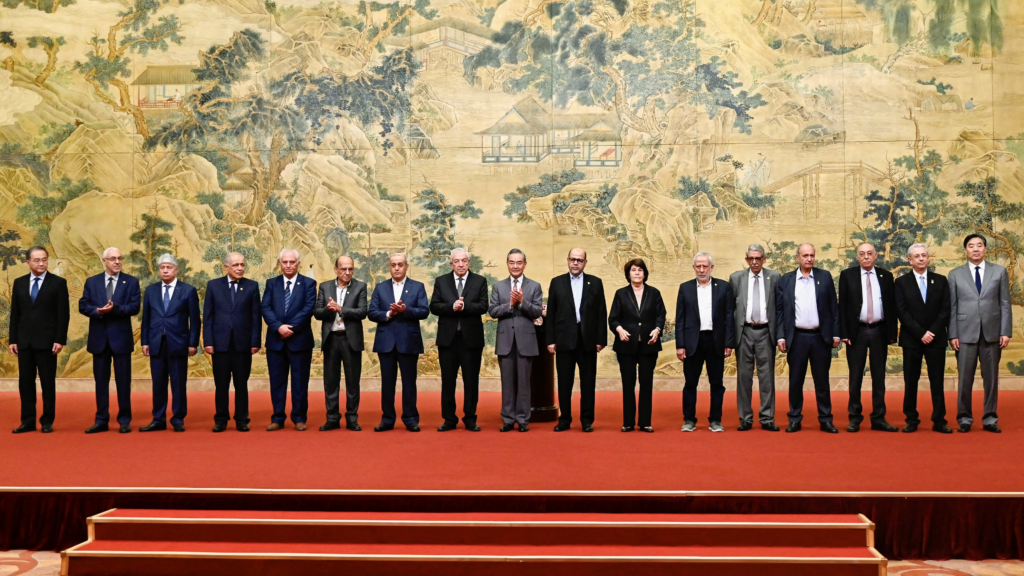Ya Libnan Editorial
In a significant diplomatic development, Palestinian factions have agreed in China to unite under the Palestine Liberation Organization (PLO). This historic agreement is anticipated to pave the way for the creation of an independent Palestinian state in the West Bank and Gaza. Such a move holds the potential to foster peaceful coexistence between Palestinians and Israelis, ending decades of occupation and conflict, and contributing to the stabilization of the Middle East region.

President Joe Biden has long championed the two-state solution as the viable path forward for peace in the region. During a news conference on July 11, 2024, following the NATO summit, Biden reiterated his stance, stating, “There’s no ultimate answer other than a two-state solution.” Despite this firm position, the United States has played a complex role, often hindering the full recognition of Palestinian territories as an independent country by preventing their admission as the 194th member state of the United Nations.
The unification of Palestinian factions under the PLO, facilitated by China’s diplomatic efforts, represents a crucial juncture. This development could provide the necessary impetus for President Biden to actively pursue the two-state solution. The international community has long awaited a resolution that would allow Palestinians and Israelis to live side by side as peaceful neighbors. The current state of occupation and intermittent warfare has not only inflicted severe humanitarian crises but also contributed to regional instability.
Biden’s consistent advocacy for the two-state solution underscores the United States’ potential role in facilitating peace. However, the U.S. has often found itself at odds with broader international consensus by vetoing resolutions that would grant full recognition to Palestinian statehood. This contradictory stance has impeded progress and fostered skepticism about America’s commitment to a just resolution.
The recent Palestinian accord in China could be the breakthrough needed to galvanize U.S. leadership. With a united Palestinian front, the prospects for meaningful negotiations improve significantly. This development presents President Biden with a unique opportunity to demonstrate decisive leadership and align U.S. policy with its long-stated support for a two-state solution.
The question remains: does President Biden have what it takes to capitalize on this momentous opportunity? The path forward is fraught with challenges, including political resistance both domestically and internationally. Yet, the urgency of the situation demands bold and courageous action. The benefits of achieving a two-state solution extend beyond the immediate region, offering a model for resolving protracted conflicts through diplomacy and cooperation.
In conclusion, the time for action is now. The unification of Palestinian factions under the PLO is a pivotal step towards peace, and it falls upon President Biden to harness this momentum. By pushing for the two-state solution, Biden can reaffirm America’s commitment to international justice and peace, potentially transforming the geopolitical landscape of the Middle East. The world watches with anticipation, hoping for a resolution that has eluded generations.


Leave a Reply
You must be logged in to post a comment.